- Home
- W. W. Jacobs
Family Cares Page 2
Family Cares Read online
Page 2
arrival of Miss Grace Lindsayto take up a post at the elementary school. Mr. Barrett succumbed almostat once, and, after a few encounters in the street and meetings at mutualfriends', went to unbosom him-self to Mr. Jernshaw.
"What has she got to do with you?" demanded that gentleman.
"I--I'm rather struck with her," said Mr. Barrett.
"Struck with her?" repeated his friend, sharply. "I'm surprised at you.You've no business to think of such things."
"Why not?" demanded Mr. Barrett, in tones that were sharper still.
"Why not?" repeated the other. "Have you forgotten your wife andchildren?"
Mr. Barrett, who, to do him justice, had forgotten, fell back in hischair and sat gazing at him, open-mouthed.
"You're in a false position--in a way," said Mr. Jernshaw, sternly.
"False is no name for it," said Mr. Barrett, huskily. "What am I to do?"
"Do?" repeated the other, staring at him. "Nothing! Unless, perhaps,you send for your wife and children. I suppose, in any case, you wouldhave to have the little ones if anything happened to her?"
Mr. Barrett grinned ruefully.
"Think it over," said Mr. Jernshaw. "I will," said the other, heartily.
He walked home deep in thought. He was a kindly man, and he spent sometime thinking out the easiest death for Mrs. Barrett. He decided at lastupon heart-disease, and a fort-night later all Ramsbury knew of theletter from Australia conveying the mournful intelligence. It wasgenerally agreed that the mourning and the general behaviour of thewidower left nothing to be desired.
"She's at peace at last," he said, solemnly, to Jernshaw.
"I believe you killed her," said his friend. Mr. Barrett startedviolently.
"I mean your leaving broke her heart," explained the other.
Mr. Barrett breathed easily again.
"It's your duty to look after the children," said Jernshaw, firmly. "AndI'm not the only one that thinks so."
"They are with their grandfather and grand-mother," said Mr. Barrett.
Mr. Jernshaw sniffed.
"And four uncles and five aunts," added Mr. Barrett, triumphantly.
"Think how they would brighten up your house," said Mr. Jernshaw.
His friend shook his head. "It wouldn't be fair to their grandmother,"he said, decidedly. "Besides, Australia wants population."
He found to his annoyance that Mr. Jernshaw's statement that he was notalone in his views was correct. Public opinion seemed to expect thearrival of the children, and one citizen even went so far as to recommenda girl he knew, as nurse.
Ramsbury understood at last that his decision was final, and, observinghis attentions to the new schoolmistress, flattered itself that it haddiscovered the reason. It is possible that Miss Lindsay shared theirviews, but if so she made no sign, and on the many occasions on which shemet Mr. Barrett on her way to and from school greeted him with frankcordiality. Even when he referred to his loneliness, which he didfrequently, she made no comment.
He went into half-mourning at the end of two months, and a month laterbore no outward signs of his loss. Added to that his step was springyand his manner youthful. Miss Lindsay was twenty-eight, and he persuadedhimself that, sexes considered, there was no disparity worth mentioning.
He was only restrained from proposing by a question of etiquette. Even ashilling book on the science failed to state the interval that shouldelapse between the death of one wife and the negotiations for another.It preferred instead to give minute instructions with regard to theeating of asparagus. In this dilemma he consulted Jernshaw.
"Don't know, I'm sure," said that gentle-man; "besides, it doesn'tmatter."
"Doesn't matter?" repeated Mr. Barrett. "Why not?"
"Because I think Tillett is paying her attentions," was the reply. "He'sten years younger than you are, and a bachelor. A girl would naturallyprefer him to a middle-aged widower with five children."
"In Australia," the other reminded him.
"Man for man, bachelor for bachelor," said Mr. Jernshaw, regarding him,"she might prefer you; as things are--"
"I shall ask her," said Mr. Barrett, doggedly. "I was going to wait abit longer, but if there's any chance of her wrecking her prospects forlife by marrying that tailor's dummy it's my duty to risk it--for hersake. I've seen him talking to her twice myself, but I never thoughthe'd dream of such a thing."
Apprehension and indignation kept him awake half the night, but when hearose next morning it was with the firm resolve to put his fortune to thetest that day. At four o'clock he changed his neck-tie for the thirdtime, and at ten past sallied out in the direction of the school. He metMiss Lindsay just coming out, and, after a well-deserved compliment tothe weather, turned and walked with her.
"I was hoping to meet you," he said, slowly.
"Yes?" said the girl.
"I--I have been feeling rather lonely to-day," he continued.
"You often do," said Miss Lindsay, guardedly.
"It gets worse and worse," said Mr. Barrett, sadly.
"I think I know what is the matter with you," said the girl, in a softvoice; "you have got nothing to do all day, and you live alone, exceptfor your housekeeper."
Mr. Barrett assented with some eagerness, and stole a hopeful glance ather.
"You--you miss something," continued Miss. Lindsay, in a falteringvoice.
"I do," said Mr. Barrett, with ardour.
"You miss"--the girl made an effort--"you miss the footsteps and voicesof your little children."
Mr. Barrett stopped suddenly in the street, and then, with a jerk, wentblindly on.
"I've never spoken of it before because it's your business, not mine,"continued the girl. I wouldn't have spoken now, but when you referred toyour loneliness I thought perhaps you didn't realize the cause of it."
Mr. Barrett walked on in silent misery.
"Poor little motherless things!" said Miss Lindsay, softly. "Motherlessand--fatherless."
"Better for them," said Mr. Barrett, finding his voice at last.
"It almost looks like it," said Miss Lindsay, with a sigh.
Mr. Barrett tried to think clearly, but the circumstances were hardlyfavourable. "Suppose," he said, speaking very slowly, "suppose I wantedto get married?"
Miss Lindsay started. "What, again?" she said, with an air of surprise.
"How could I ask a girl to come and take over five children?"
"No woman that was worth having would let little children be sacrificedfor her sake," said Miss Lindsay, decidedly.
"Do you think anybody would marry me with five children?" demanded Mr.Barrett.
"She might," said the girl, edging away from him a little. "It dependson the woman."
"Would--you, for instance?" said Mr. Barrett, desperately.
Miss Lindsay shrank still farther away. "I don't know; it would dependupon circumstances," she murmured.
"I will write and send for them," said Mr. Barrett, significantly.
Miss Lindsay made no reply. They had arrived at her gate by this time,and, with a hurried handshake, she disappeared indoors.
Mr. Barrett, somewhat troubled in mind, went home to tea.
He resolved, after a little natural hesitation, to drown the children,and reproached himself bitterly for not having disposed of them at thesame time as their mother. Now he would have to go through anotherperiod of mourning and the consequent delay in pressing his suit.Moreover, he would have to allow a decent interval between hisconversation with Miss Lindsay and their untimely end.
The news of the catastrophe arrived two or three days before the returnof the girl from her summer holidays. She learnt it in the first half-hour from her landlady, and sat in a dazed condition listening to adescription of the grief-stricken father and the sympathy extended to himby his fellow-citizens. It appeared that nothing had passed his lips fortwo days.
SHE LEARNT THE NEWS IN THE FIRST HALF-HOER FROM HERLANDLADY.]
"Shocking!" said Mis
s Lindsay, briefly. "Shocking !"
An instinctive feeling that the right and proper thing to do was to nursehis grief in solitude kept Mr. Barrett out of her way for nearly a week.When she did meet him she received a limp handshake and a greeting in avoice from which all hope seemed to have departed.
"I am very sorry," she said, with a sort of measured gentleness.
Mr. Barrett, in his hushed voice, thanked her.
"I am all alone now," he said, pathetically. "There is nobody now tocare whether I live or die."
Miss Lindsay did not contradict him.
"How did it happen?" she inquired, after they had gone some distance insilence.
"They were out in a sailing-boat," said Mr. Barrett; "the boat capsizedin a puff of wind, and they were all drowned."
"Who was in charge of them?" inquired the girl, after a decent interval.
"Boatman," replied the other.
"How did you hear?"
"I had a letter from one of my sisters-in-law, Charlotte," said Mr.Barrett. "A most affecting letter. Poor Charlotte was like a secondmother to them. She'll never be the same woman again. Never!"
"I should like to see the letter," said Miss Lindsay, musingly.
Mr. Barrett suppressed a start. "I should like to show it to you," hesaid, "but I'm afraid I have destroyed it. It made me shudder every timeI looked at it."
"It's a pity," said the girl, dryly. "I should have liked to see it.I've got my own idea about the matter. Are you sure she was very fond ofthem?"
"She lived only for them," said Mr. Barrett, in a rapt voice.
"Exactly. I don't believe they are drowned at all," said Miss Lindsay,suddenly. "I believe you have had all this terrible anguish for nothing.It's too cruel."
Mr. Barrett stared at her in anxious amazement.
"I see it all now," continued the girl. "Their Aunt Charlotte wasdevoted to them. She always had the fear that some day you would returnand claim them, and to prevent that she invented the story of theirdeath."
"Charlotte is the most truthful woman that ever breathed," said thedistressed Mr. Barrett.
Miss Lindsay shook her head. "You are like all other honourable,truthful people," she said, looking at him gravely. "You can't imagineanybody else telling a falsehood. I don't believe you could tell one ifyou tried."
Mr. Barrett gazed about him with the despairing look of a drowningmariner.
"I'm certain I'm right," continued the girl. "I can see Charlotteexulting in her wickedness. Why!"
"What's the matter?" inquired Mr. Barrett, greatly worried.
"I've just thought of it," said Miss Lindsay. "She's told you that yourchildren are drowned, and she has probably told them you are dead. Awoman like that would stick at nothing to gain her ends."
"You don't know Charlotte," said Mr. Barrett, feebly.
"I think I do," was the reply. "However, we'll make sure. I supposeyou've got friends in Melbourne?"
"A few," said Mr. Barrett, guardedly.
"Come down to the post-office and cable to one of them."
Mr. Barrett hesitated. "I'll write," he said, slowly. "It's an awkwardthing to cable; and there's no hurry. I'll write to Jack Adams,I think."
"It's no good writing," said Miss Lindsay, firmly. "You ought to knowthat."
"Why not?" demanded the other.
"Because, you foolish man," said the girl, calmly, "before your lettergot there, there would be one from Melbourne saying that he had beenchoked by a fish-bone, or died of measles, or something of that sort."
Mr. Barrett, hardly able to believe his ears, stopped short and looked ather. The girl's eyes were moist with mirth and her lips trembling. Heput out his hand and took her wrist in a strong grip.
"That's all right," he said, with a great gasp of relief. "_Phew!_ Atone time I thought I had lost you."
"By heart-disease, or drowning?" inquired Miss Lindsay, softly.

_preview.jpg) Sailor's Knots (Entire Collection)
Sailor's Knots (Entire Collection)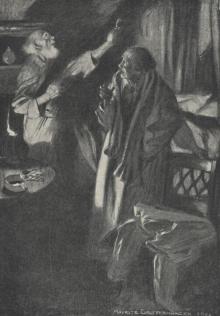 The Monkey's Paw
The Monkey's Paw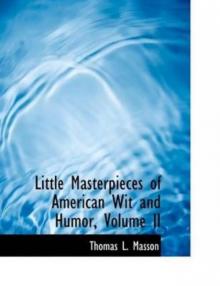 Little Masterpieces of American Wit and Humor, Volume II
Little Masterpieces of American Wit and Humor, Volume II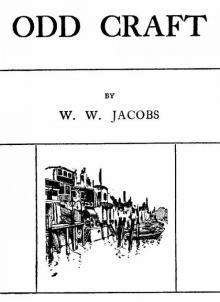 Odd Craft, Complete
Odd Craft, Complete The Lady of the Barge and Others, Entire Collection
The Lady of the Barge and Others, Entire Collection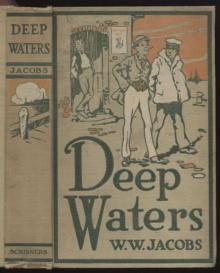 Deep Waters, the Entire Collection
Deep Waters, the Entire Collection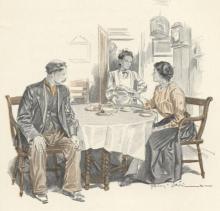 Three at Table
Three at Table Light Freights
Light Freights Night Watches
Night Watches The Three Sisters
The Three Sisters Ship's Company, the Entire Collection
Ship's Company, the Entire Collection His Lordship's Leopard: A Truthful Narration of Some Impossible Facts
His Lordship's Leopard: A Truthful Narration of Some Impossible Facts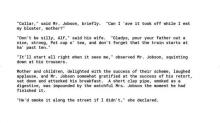 Fine Feathers
Fine Feathers My Man Sandy
My Man Sandy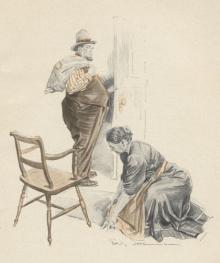 Self-Help
Self-Help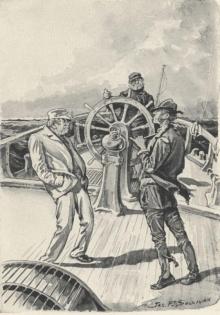 Captains All and Others
Captains All and Others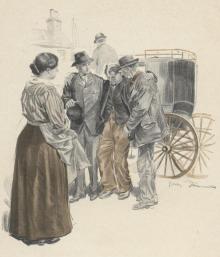 Back to Back
Back to Back More Cargoes
More Cargoes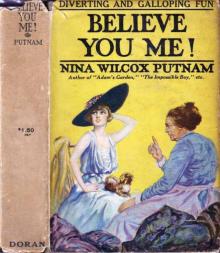 Believe You Me!
Believe You Me!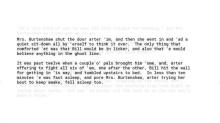 Keeping Up Appearances
Keeping Up Appearances The Statesmen Snowbound
The Statesmen Snowbound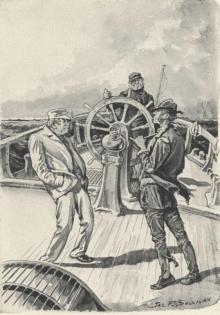 An Adulteration Act
An Adulteration Act The Old Soldier's Story: Poems and Prose Sketches
The Old Soldier's Story: Poems and Prose Sketches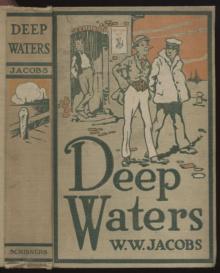 Husbandry
Husbandry Love and the Ironmonger
Love and the Ironmonger The Old Man's Bag
The Old Man's Bag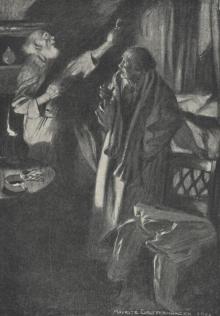 Dirty Work
Dirty Work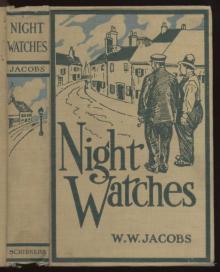 Easy Money
Easy Money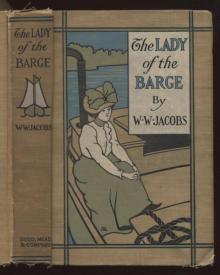 The Lady of the Barge
The Lady of the Barge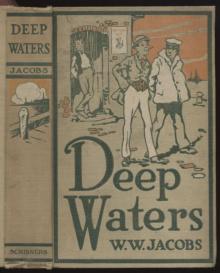 Bedridden and the Winter Offensive
Bedridden and the Winter Offensive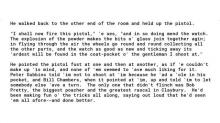 Odd Charges
Odd Charges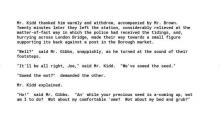 Friends in Need
Friends in Need Watch-Dogs
Watch-Dogs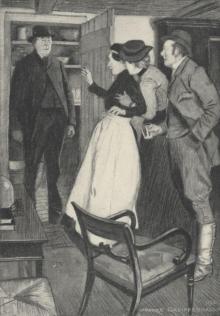 Cupboard Love
Cupboard Love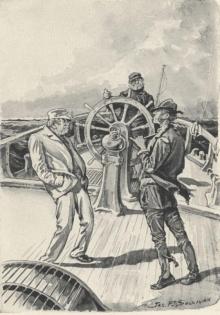 Captains All
Captains All A Spirit of Avarice
A Spirit of Avarice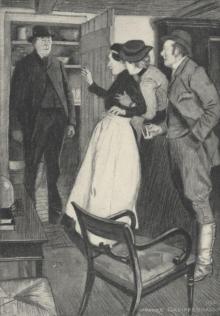 The Nest Egg
The Nest Egg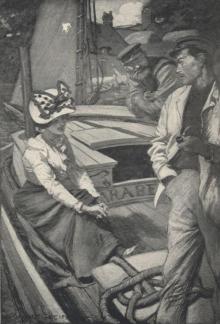 The Guardian Angel
The Guardian Angel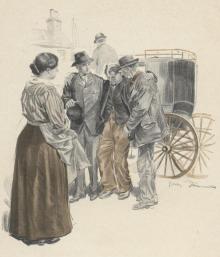 The Convert
The Convert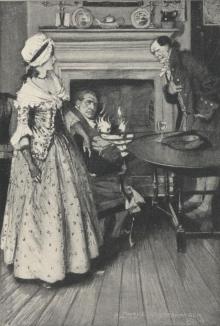 Captain Rogers
Captain Rogers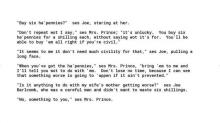 Breaking a Spell
Breaking a Spell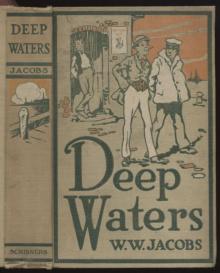 Striking Hard
Striking Hard The Bequest
The Bequest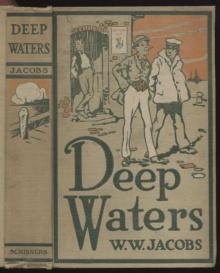 Shareholders
Shareholders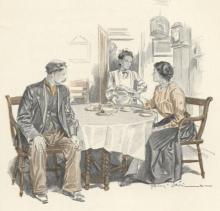 The Weaker Vessel
The Weaker Vessel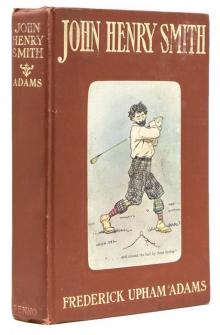 John Henry Smith
John Henry Smith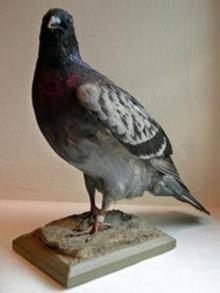 Four Pigeons
Four Pigeons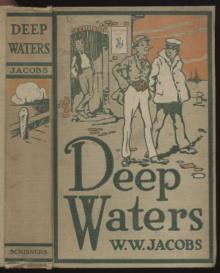 Made to Measure
Made to Measure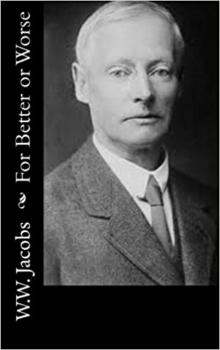 For Better or Worse
For Better or Worse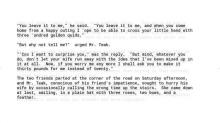 Fairy Gold
Fairy Gold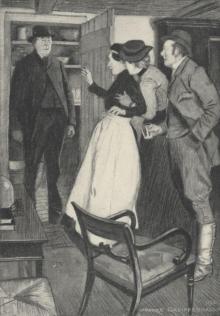 Family Cares
Family Cares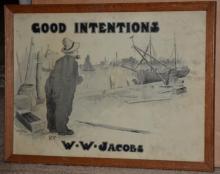 Good Intentions
Good Intentions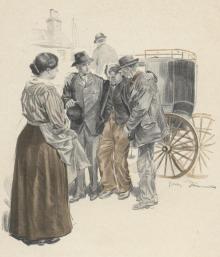 Prize Money
Prize Money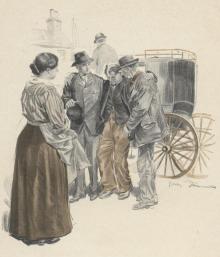 The Temptation of Samuel Burge
The Temptation of Samuel Burge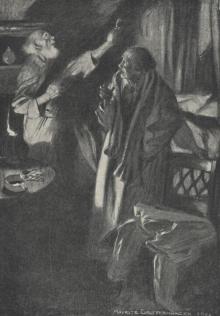 The Madness of Mr. Lister
The Madness of Mr. Lister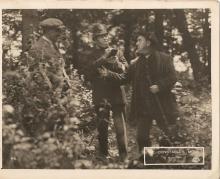 The Constable's Move
The Constable's Move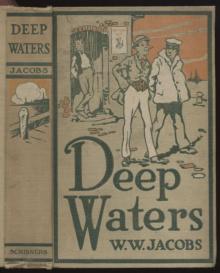 Paying Off
Paying Off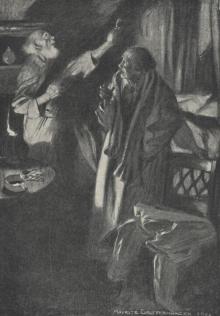 Double Dealing
Double Dealing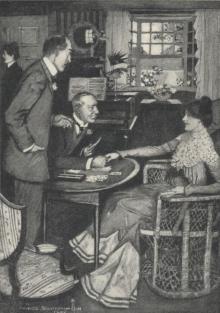 A Mixed Proposal
A Mixed Proposal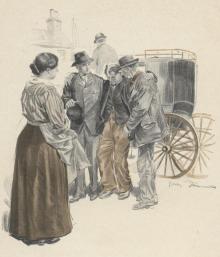 Bill's Paper Chase
Bill's Paper Chase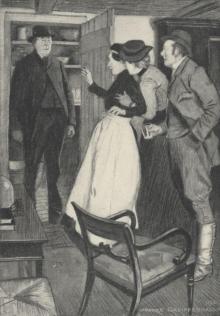 The Changing Numbers
The Changing Numbers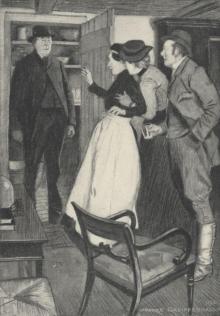 Over the Side
Over the Side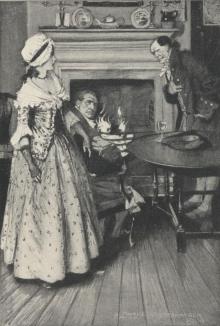 Lawyer Quince
Lawyer Quince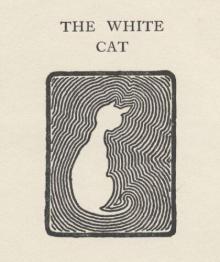 The White Cat
The White Cat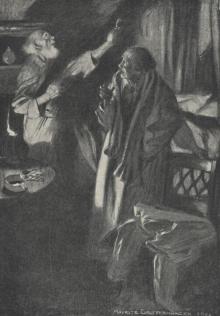 Admiral Peters
Admiral Peters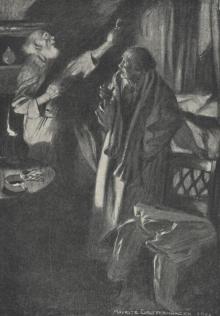 The Third String
The Third String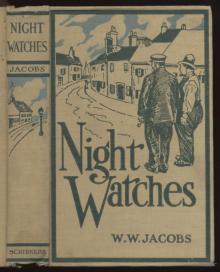 The Vigil
The Vigil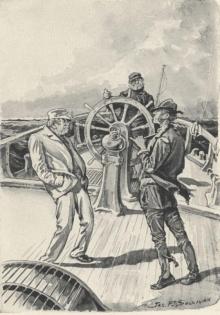 Bill's Lapse
Bill's Lapse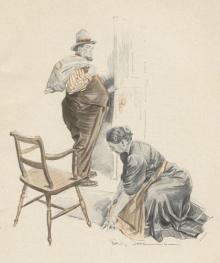 His Other Self
His Other Self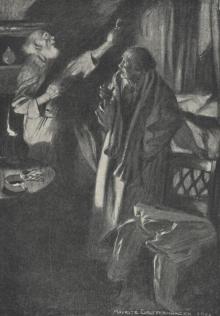 Matrimonial Openings
Matrimonial Openings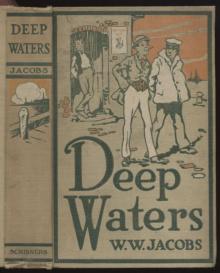 The Substitute
The Substitute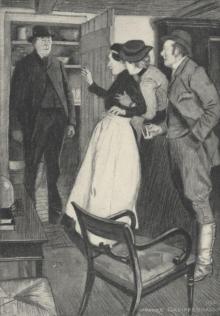 Deserted
Deserted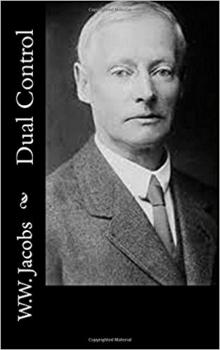 Dual Control
Dual Control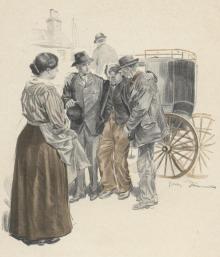 Homeward Bound
Homeward Bound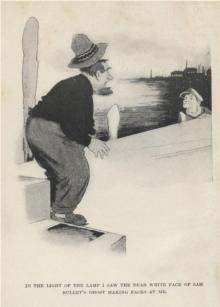 Sam's Ghost
Sam's Ghost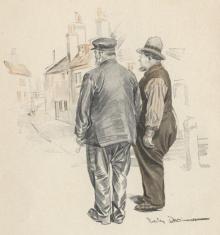 The Unknown
The Unknown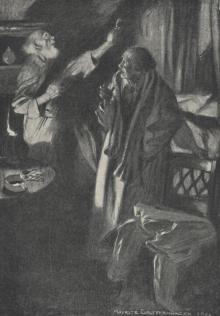 Stepping Backwards
Stepping Backwards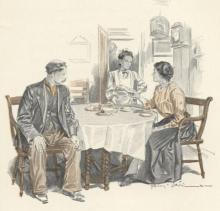 Sentence Deferred
Sentence Deferred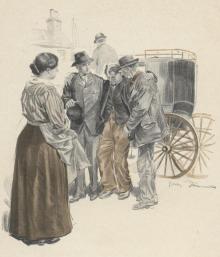 The Persecution of Bob Pretty
The Persecution of Bob Pretty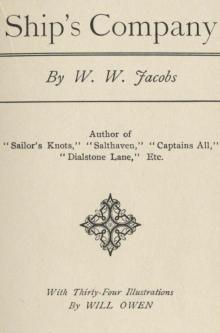 Skilled Assistance
Skilled Assistance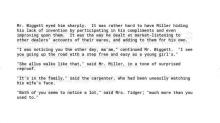 A Golden Venture
A Golden Venture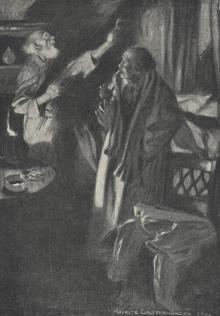 Establishing Relations
Establishing Relations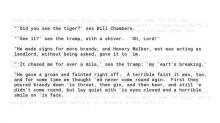 A Tiger's Skin
A Tiger's Skin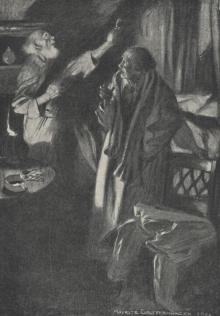 Bob's Redemption
Bob's Redemption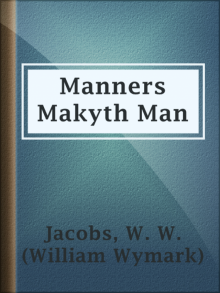 Manners Makyth Man
Manners Makyth Man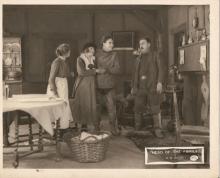 The Head of the Family
The Head of the Family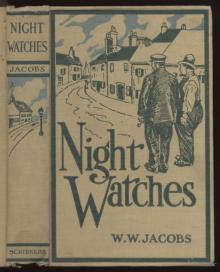 The Understudy
The Understudy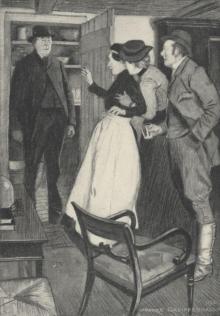 Odd Man Out
Odd Man Out Once Aboard the Lugger-- The History of George and his Mary
Once Aboard the Lugger-- The History of George and his Mary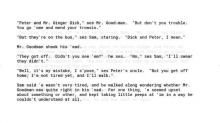 Peter's Pence
Peter's Pence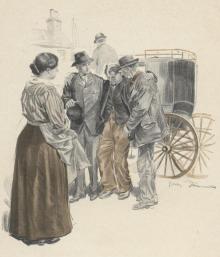 Blundell's Improvement
Blundell's Improvement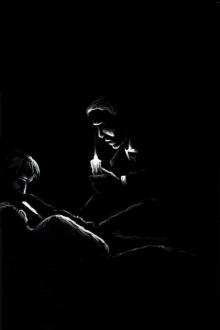 The Toll-House
The Toll-House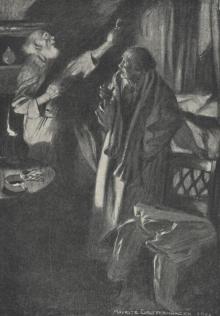 Dixon's Return
Dixon's Return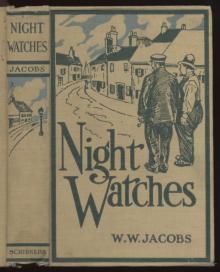 Keeping Watch
Keeping Watch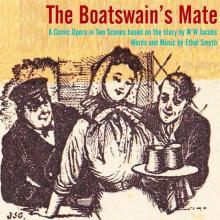 The Boatswain's Mate
The Boatswain's Mate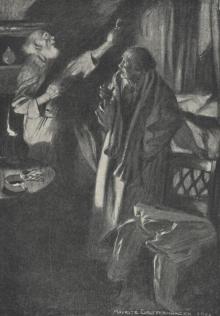 The Castaway
The Castaway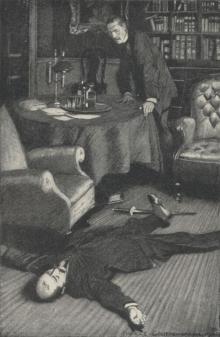 In the Library
In the Library The Monkey's Paw and Other Tales Of Mystery and the Macabre
The Monkey's Paw and Other Tales Of Mystery and the Macabre